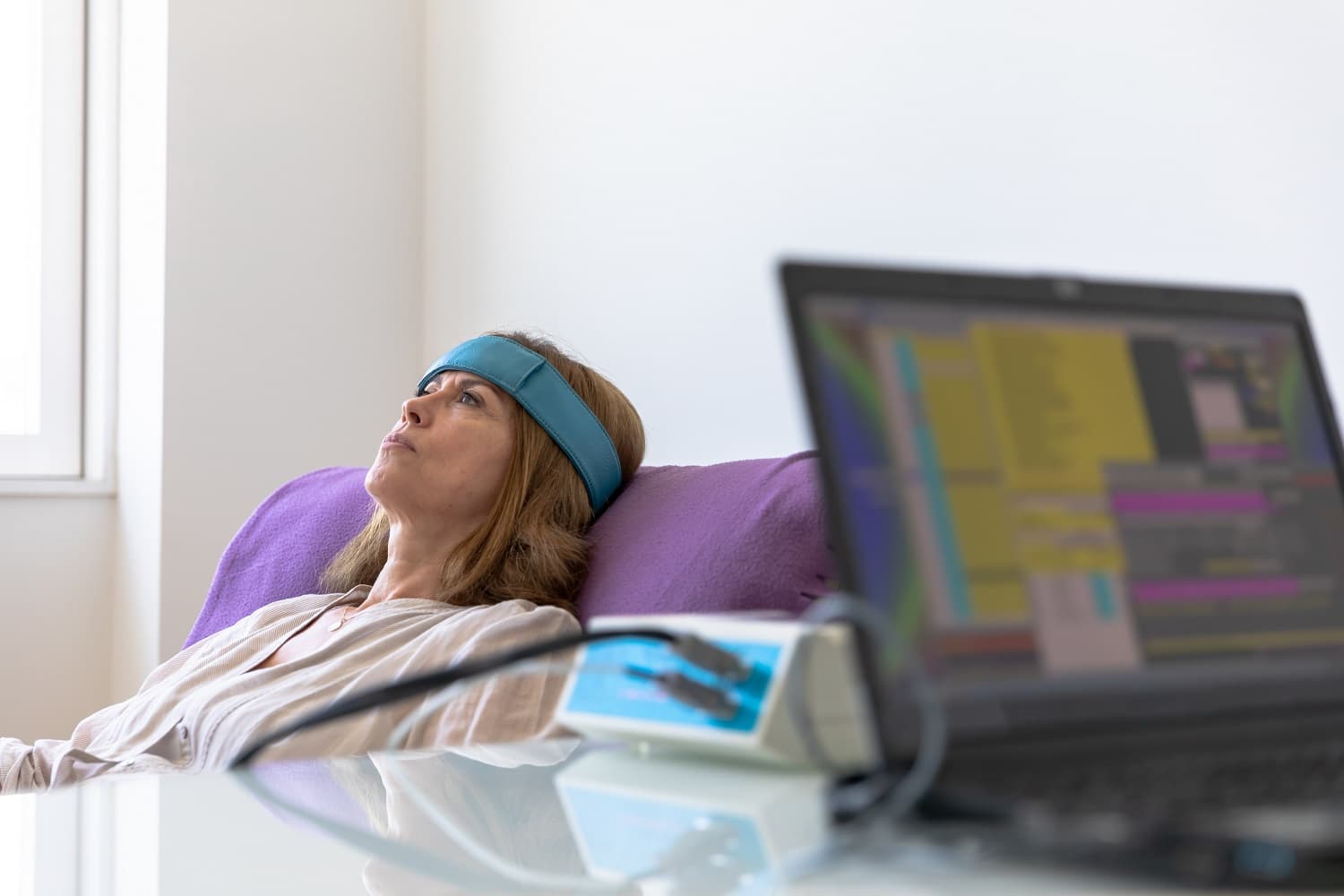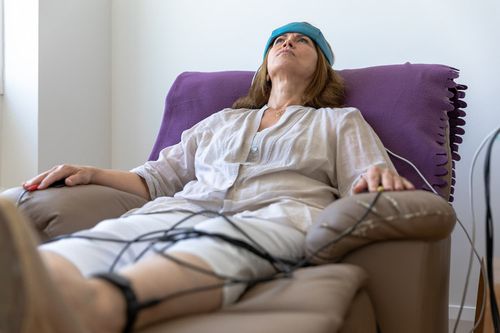What is Biofeedback?
Biofeedback therapy is a technique in which people are trained to improve their overall health by controlling involuntary bodily processes such as skin temperature, muscle tension, blood pressure, and heart rate. This is based on the belief that the use of mind and willpower can help influence the automatic functions of the body.
Learning how to control the body's response decreases stress, improves the functions of the immune system as well as the body's natural healing mechanism.

How Does Biofeedback Work?
Electrodes are patches that are placed on the different areas of the body―usually the head, hands, fingers or earlobe―to measure their functions while displaying the results on a monitor. Also, the monitor shows the changes in the body's automatic functions, such as blood pressure and heart rate, in response to its stressed or relaxed state.
The readings from these special machines and sensors are used to help teach the patient how to control normal bodily processes that increase in times of stressful periods. The data collected can be used to recognise and control aspects of the stress response with self-regulating exercises like controlled breathing and visualisation techniques.
There are several special machines being used for biofeedback therapy which include:
- Electroencephalogram (EEG) - used in measuring brainwaves that are linked to the different states of being like wakefulness, relaxation, calmness, light sleep, and deep sleep.
- Electromyogram (EMG) - used in measuring the response of the muscles to signals. It is mainly used in relaxing the muscles associated with headaches, back pain, neck pain, and teeth grinding. It can also be used in treating some illnesses where stress is a factor, like asthma.
- Galvanic Skin Response Training - measures the activity of the sweat glands and the amount of perspiration on the skin. It is useful in managing emotional disorders like anxiety, stuttering, and phobias.
- Temperature Biofeedback - used in measuring body temperature which is then used in treating circulatory disorders or in reducing the occurrence of migraines.
What Are the Benefits of Biofeedback?
The visual and audible feedback collected from biofeedback therapy allows the trained Biofeedback practitioner to gain insight into what's going on inside the body and assist their client in controlling their emotions and improving the quality of their life. Biofeedback therapy has been known to help several medical conditions, including the following:
- Chronic pain
- Headaches and migraines
- Fear, anxiety or stress
- Urinary incontinence
- High blood pressure
- Attention deficit hyperactivity disorder (ADHD)
- Chronic obstructive pulmonary disease (COPD)
- Asthma
- Autism
- Back pain
- Constipation
- Depression
- Diabetes
- Epilepsy and other related seizure disorders
- Fecal incontinence
- Fibromyalgia
- Head injuries
- Insomnia
- Irritable bowel syndrome
- Learning disabilities
- Motion sickness
- Muscle spasms
- Raynaud's disease
- Ringing in the ears (tinnitus)
- Side effects of chemotherapy
- Spinal cord injuries
- Stroke
- Temporomandibular joint disorder (TMJ)
- Side effects of cancer treatments
What Can You Expect From Biofeedback?
The result of a biofeedback therapy varies for each person as it depends on their individual needs and emotional state, as well as the system used on them. Some biofeedback systems measure heart rate variability, others measure skin temperature, and there are also devices that measure brainwaves.
During a therapy session, the client will be facing a monitor that shows their heart rate variability in relation to their physiological, psychological or emotional state. The self-regulating exercises included in the session will teach them how to mindfully control their emotions, thoughts and bodily functions, enabling them to achieve excellent physical, emotional and mental health.
A biofeedback therapy session may last for 30 minutes to an hour. The number of follow-up sessions you need to attend depends on the state of your health and how quickly you learn to control your body's response to stress.
Is Biofeedback Safe?
Biofeedback is considered safe because it's a noninvasive and non-manipulative treatment. According to scientific journals, no negative side effects linked to this modality have been reported.




